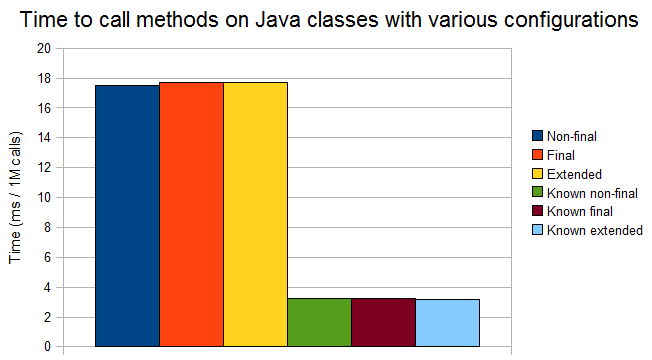Performance of Java 'final' (ctd)
Following from our description of a test to investigate the
relative timings of
calls on instances of final vs non-final classes, we thus
have six different test configurations.
These comprise the combinations of
category (non-final, final, extended) and whether or not the precise subclass is known
to the compiler. Figure 1 below shows the results of this test (mean timing to
make a million calls in each of these six configurations).

Figure 1: relative timings of method calls on classes that are non-final (and not
extended), final and non-final but extended by another class, in cases where the
precise subclass is known or not to the compiler. Each timing is actually the
mean of 50 runs reported by System.nanoTime(), under Hotspo 1.6.0 64-bit
running on an Intel i7 under Windows 7.
What we observe is that specifying a class as final makes no
performance difference. There is no evidence of any supposed optimisation
that the JVM can make based on whether or not a class is final (or indeed because
there exist objects of another class extending the class in question).
Irrespectively of whether or not the class is final, there is a potential
optimisation if the precise subclass is known.